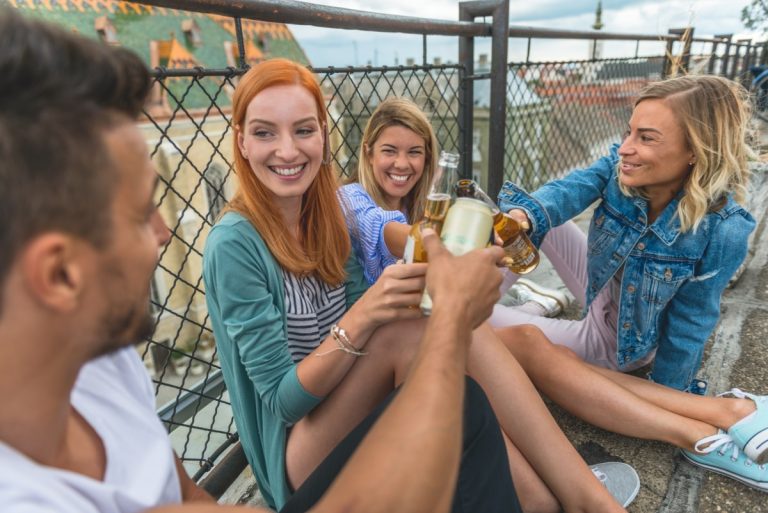
From freshers week antics to society initiations and formal dinners, alcohol often plays a large role in student life. But when does drinking become a darker problem?
University is a time when you can embrace freedom from your parents and find your feet as an independent adult.
With this new-found liberty, the temptation to let your hair down and enjoy adult life with your friends is all too enticing.
But a study has found that partying and drinking often starts before university due to “deviant peer clustering”, a social pattern where students who feel rejected by their peers tend to form tight social circles with each other, reported Education Week.
Nationally, seven out of 10 college students drink regularly, and three out of 10 will be problem drinkers. https://t.co/UkoOeLtD9l
— LifeZette (@LifeZette) December 20, 2017
These social groups tend to reinforce delinquent behaviors such as drinking, says a study published this week in the journal Child Development.
In order to prevent these drinking habits forming in adult life, the author of the study encouraged schools to implement “cooperative learning” where students have the chance to mix with peers outside their friendship group through “reciprocal teaching, peer tutoring, and other group-based activities”.
“In order for group-based learning activities to promote social integration, however, they must establish a social context that reduces biases and prejudices among students who belong to different social groups,” the study says.
“A key ingredient of such a social context is ‘positive interdependence’, that is when goals are structured such that individuals can attain their goals if (and only if) others in their group also reach their goals … Instead of competing with or ignoring one another, peers are more likely to promote the success of one another through mutual assistance, emotional support, and sharing of resources.”
Students who took part in cooperative learning said they had less frequently associated with peers who “get in trouble a lot,” “fight a lot,” “take things that don’t belong to them” and “skip school”.
Liked this? Then you’ll love…
Iceland has solved its youth alcohol problems. But what about at university?
Student makes alcoholic drink beer-riffic for your gut health







